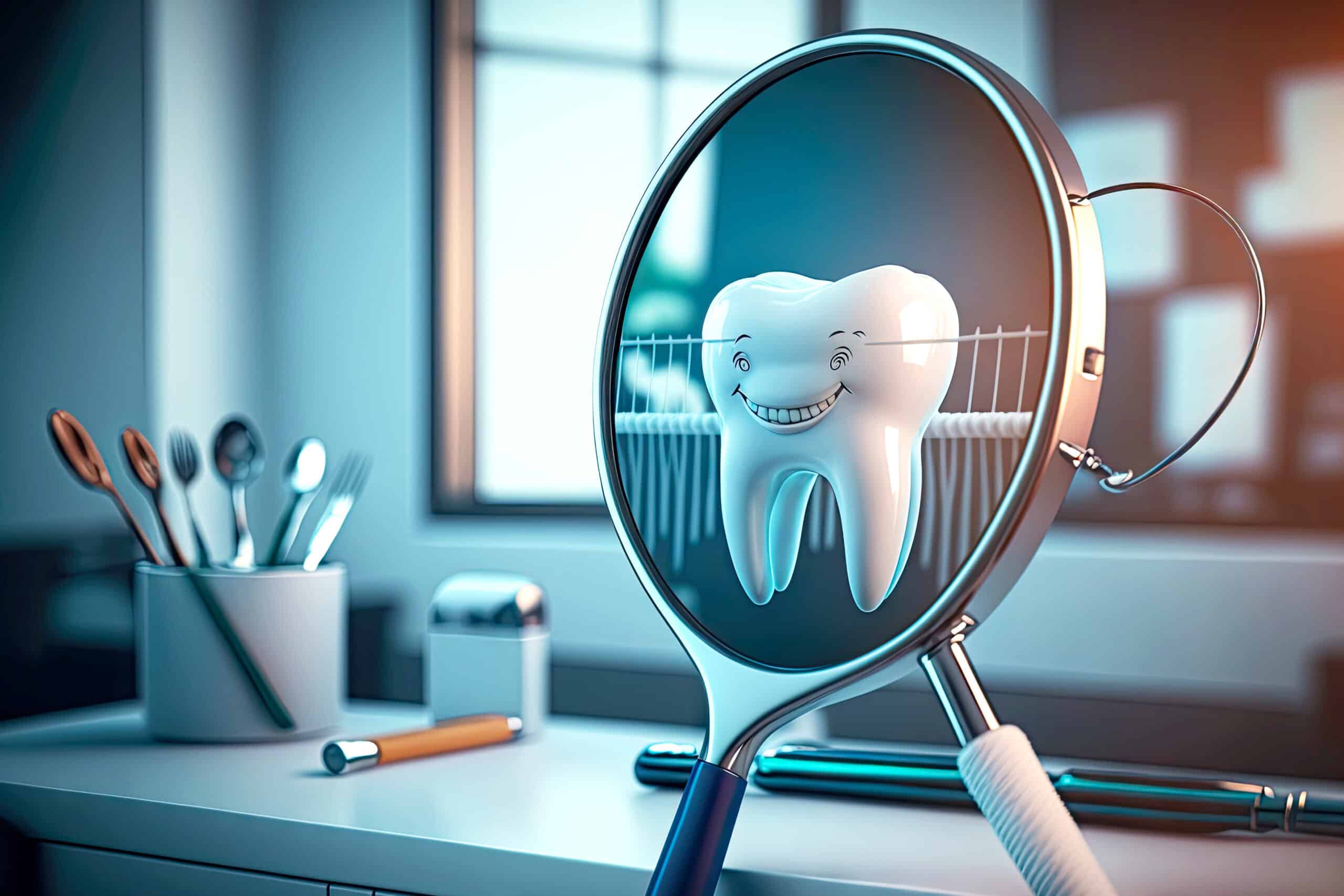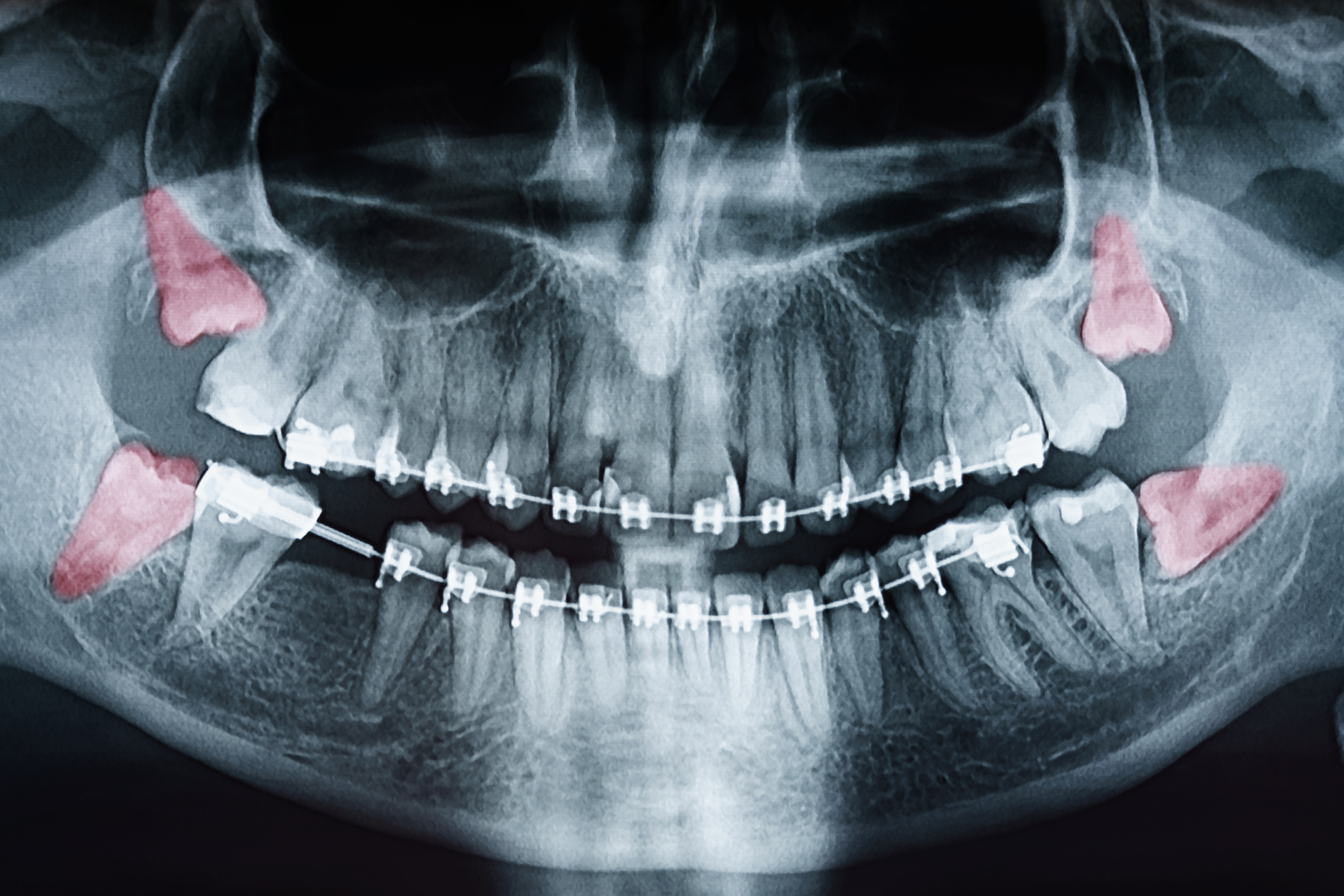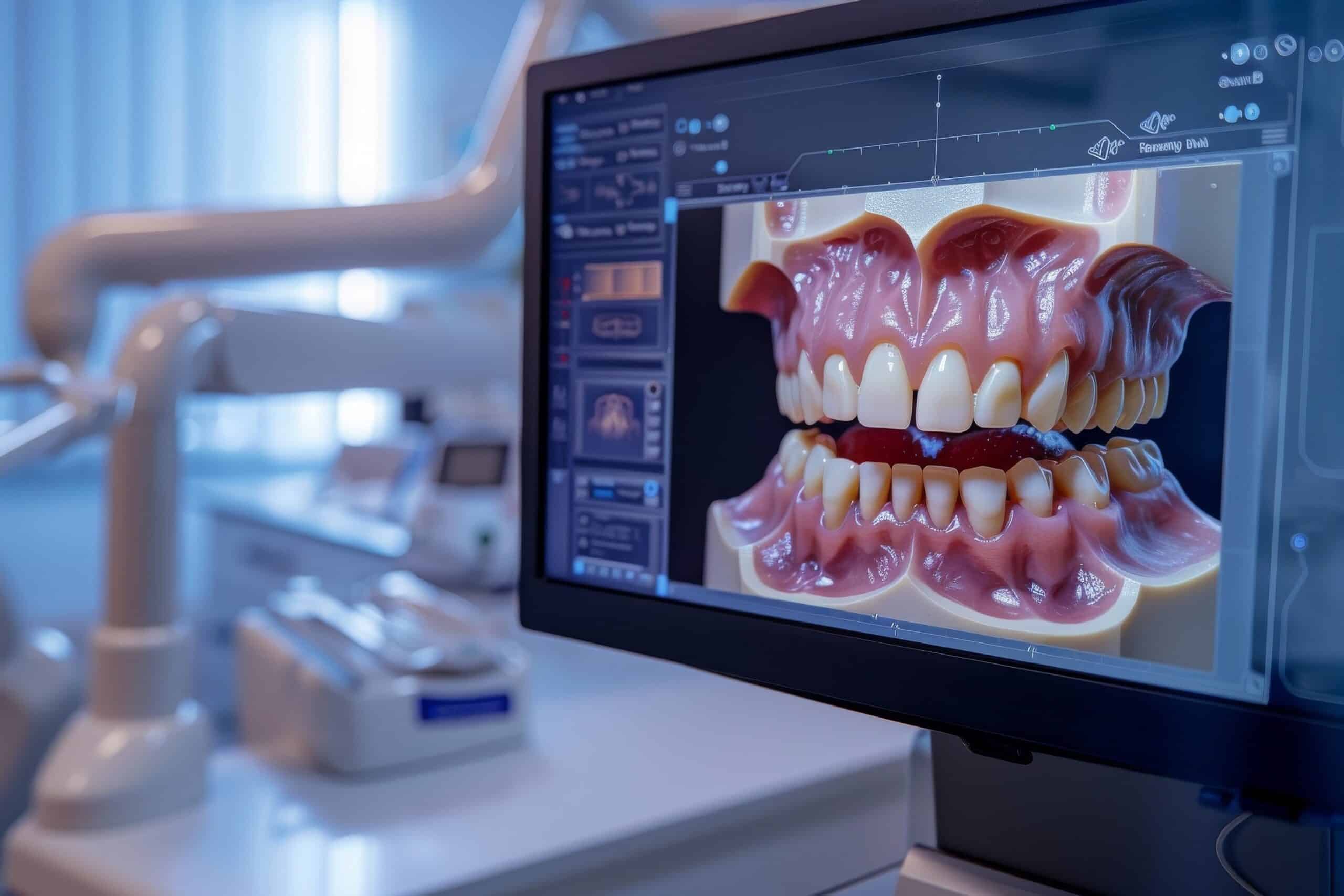A winning smile depends on having healthy teeth and gums. Everyone needs to practice good oral hygiene, and see a dentist regularly to prevent life-long problems like tooth decay and gum disease. Ongoing oral care is also a great way to get early diagnosis and treatment of other serious mouth diseases like ulcers, cysts, and mouth cancer.
We’re going to list some key steps everyone can do to keep their smile glowing in this article. They are simple things you can include in your routine and only take a few moments to do. The rewards are great teeth for life.

There are four specific things you should do for a healthy mouth:
- Maintain an oral hygiene routine of brushing and flossing.
- Use a good antibacterial mouthwash and fluoride toothpaste.
- Stop bad habits like smoking or using smokeless tobacco.
- Visit your dentist twice a year.
Oral hygiene and preventive care are important for a healthy smile
Oral hygiene is an essential part of a healthy smile. It’s also important for your overall health because mouth diseases are directly related to other diseases like heart issues. Tooth decay and gum disease will eventually prevent you from eating all the nutritious things you should eat because you will have trouble chewing.
The standard has always been to brush your teeth twice a day and floss once daily. Those who have ongoing mouth issues like ongoing, problematic tartar and plaque should consider brushing after meals during the day as well.
Brush and floss daily
To keep your teeth healthy and strong, it’s important to brush and floss regularly. Brushing removes plaque from your teeth, which can lead to cavities if left untreated. Flossing clears out food particles that get stuck between teeth that a toothbrush can’t reach.
Although most people know to brush at least twice a day, many don’t understand how to brush correctly to be effective in removing tartar and plaque.
You should use a soft-bristled toothbrush so you don’t damage your gums while brushing. Use circular motions over the teeth and gums and be sure to brush all areas of teeth. That includes the outside, inside, and tops.
Brush along the gumline where plaque and tartar settle
Those who want to invest some money into their oral care can buy an electric or battery-operated toothbrush. These are highly effective in removing debris because they make a circular motion. Just make sure they are approved by the American Dental Association (ADA).
However, you don’t have to have a high-end toothbrush to maintain good oral care. You can offer the same care by learning how to properly maneuver a manual toothbrush in a circular pattern.
Use fluoride toothpaste and mouthwash
Fluoride is a mineral that helps prevent tooth decay. It can be found in many kinds of toothpaste, mouthwash, and even water. Fluoride works by making the surface of your teeth more resistant to acid attacks from food and drinks such as cola or fruit juice.
These products are designed to help prevent cavities and gingivitis (gum disease), which can cause serious problems if left untreated.
Antibacterial mouthwashes are the best for controlling bacteria in your mouth.
- Be sure to pick a fluoride toothpaste that has ADA approval.
- Make sure you use mouthwash at least two times per day–once in the morning and once before bedtime–to remove bacteria from your mouth that cause bad breath and plaque buildup on your teeth’s surface.
Making changes to your habits
Changing some bad habits will help you maintain oral health. This includes making adjustments to your diet such as avoiding sugary drinks and eating things like carrots that can help “scrub” your teeth.
It also means avoiding things like tobacco and alcoholic beverages.
If you are a smoker or drink alcohol excessively then you must speak with your dentist about how these activities affect the health of your teeth.
Make regular dental appointments
You should make regular dental appointments, even if you don’t have any symptoms. It’s also important to see your dentist if you’ve had any toothaches or if a tooth has been pulled.
Regular visits with your dentist are also important because they provide an opportunity for them to do regular checkups on your oral health, including taking x-rays, inspecting for signs of gum disease or decay, and checking for signs of periodontal disease.
Dental checkups are important for everyone–not just those who have a history of oral health problems. A routine checkup can help identify problems before they become serious and painful. They can help prevent problems before they start, as well as catch them earlier than they might otherwise be able to be detected. Early detection means less time and money spent on treatment, which is good news for your wallet!
Oral hygiene and preventive care are important for a healthy smile. Seeing your dentist regularly, maintaining a good home oral health routine, using fluoride products, and changing bad habits help maintain your smile for life.




